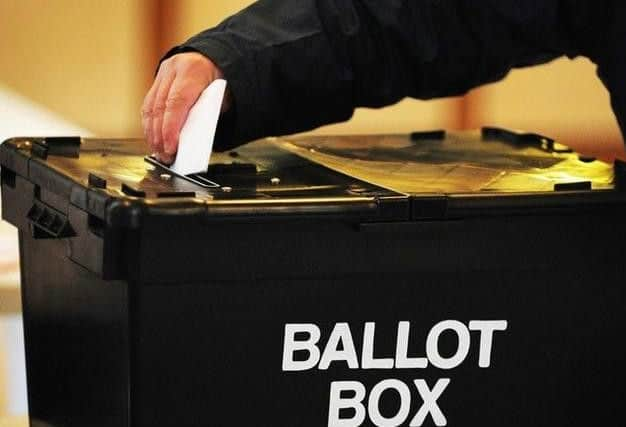General election: Boats on standby to collect ballot boxes from Scottish islands in case bad weather hits on polling day
As Scotland prepares for the first general election to be held in the winter since 1974, councils are finalising contingency plans to ensure the democratic process runs smoothly no matter the weather.
While forecasts predict a typically dreich day in most parts of the country when the 4,710 polling stations open at 7am on 12 December, nothing is being left to chance.
Advertisement
Hide AdAdvertisement
Hide AdWhen voting finishes at 10pm, returning officers on islands such as Gigha and Coll will wait for one of the two helicopters employed by Argyll and Bute Council to collect their ballot boxes.


But skippers will also be ready to take to the seas and collect island votes the
old-fashioned way if the unpredictable weather means choppers cannot take to the skies.
Argyll and Bute covers some 2,668 square miles but returns just a single MP, reflecting the region’s sparse population of around 86,000.
The ballots collected from 125 polling stations will be taken to the Mid Argyll Sports Centre in Lochgilphead, where the first counting will begin not long after 10pm.
The council told The Scotsman that a range of contingency plans were in place in case of bad weather.
The authority’s fleet of 4x4 vehicles would be deployed if necessary, while additional polling and count staff are on call.
Scots expect bad weather in December and experts said it was unlikely they would be put off doing their democratic duty by a dark and blustery day.
Advertisement
Hide AdAdvertisement
Hide Ad“Local councils in Scotland have significant experience of providing public services throughout the year,” a spokeswoman for the Electoral Commission said.
Highland Council, which covers one third of Scotland’s land area, said it was well prepared for all eventualities.
A spokeswoman said: “For a winter count, we have switched venues from Dingwall football academy to the Inverness Leisure Centre as it is easier to heat.”
She added: “We have made preparations to increase gritting around polling stations and to provide lighting, in the event of power cuts, to ensure safe access and egress by voters and election staff.”
The last time a general election was called in December was 1923.
The Conservatives, led by Stanley Baldwin, won the most seats.
However, Labour, led by Ramsay MacDonald, and the reunited Liberals gained enough seats to produce a hung parliament.
Ben Page, the chief executive of market research firm Ipsos Mori, said: “In terms of winter elections, we only really have February 1974 to go on.
Advertisement
Hide AdAdvertisement
Hide Ad“Then the weather was bad, but the turnout (79 per cent) was high, and up on 1970.
“By contrast, for the Blair 1997 landslide, temperatures rose to the mid-20s, but turnout (71 per cent) was down on 1992.
“Other factors – such as the perceived importance and closeness of the election – are likely to play at least as big a part as the weather.”